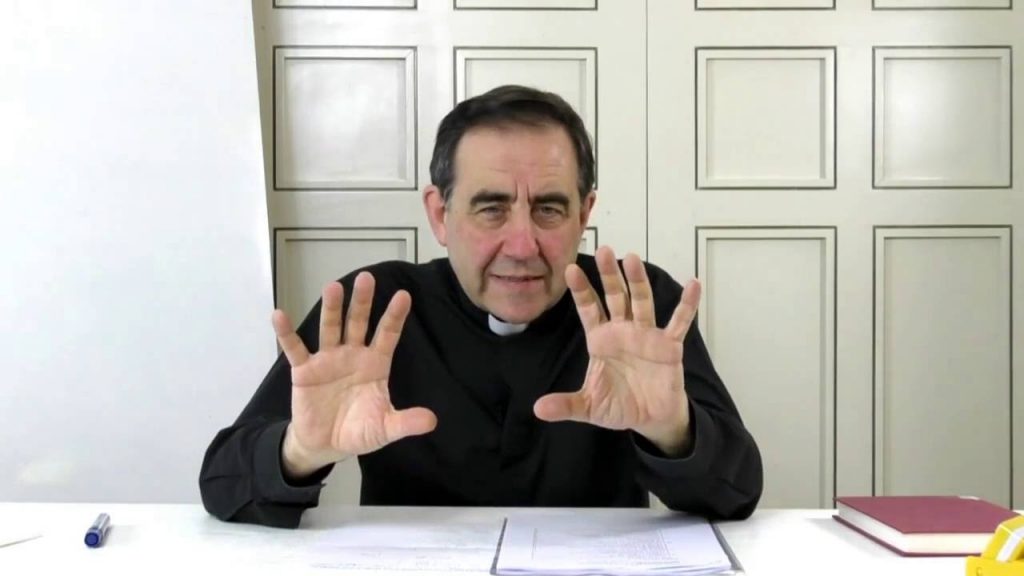The teacher Juan Luis Lorda offers on his youtube channel an informative analysis of the current crisis facing the Church and proposes a series of suggestions for dealing with it. Surprisingly, for his presentation he acknowledges having resorted to artificial intelligence tools, such as GPT chat and Bing, although evidently the core of the presentation is based on his personal reflections.
A diagnosis of the crisis
Lorda identifies three major factors that have led to the loss of faith in many believers:
- Historical doubtsThe uncertainties about Jesus Christ and the reliability of the biblical texts generate confusion and distrust in some people.
- Influence of secularizationA cultural and social environment adverse to faith, fed by processes of de-Christianization in the West. Lorda highlights the role of television in the 20th century (which replaced the formative role of the family) and the crisis of religious education, which altered the traditional models of faith transmission.
- Negative experiences with religionBoth personal and global, such as the pederasty scandal, have profoundly affected the perception of the Church.
In this context, Lorda emphasizes that the Church, in attempting to renew itself after the Vatican Council IIfaced internal tensions that led to a crisis that affected many aspects.
Return to tradition with balance
Lorda warns about a common stance among some groups: the idea of cutting with everything that happened after the death of Pius XII in 1958 in order to "recover the tradition". Although this intention starts from a desire for fidelity, it forgets that true tradition includes communion with the Pope and the unity of the Church. According to Lorda, an incorrect diagnosis prevents a correct approach to current problems, the solution to which is to remember that the Church is the work of the Holy Spirit.
What should we do? Three fundamental steps
Following the diagnosis, Lorda proposes three essential actions to confront the crisis in the Church:
- Celebrate the Eucharist well. The celebration of the Eucharist, the source of life for the Church, must be done with devotion and in communion with the universal Church. The Church is born of the Eucharist and this is almost as difficult to believe as saying that what makes the Church is the cross, but in the end it is the same thing. The most effective way to change the world does not depend on the press or social networks, but on prioritizing what Jesus Christ commanded: "Do this in memory of me".
- Evangelize with a more charismatic spirit. Drawing inspiration from Jesus' command to "make disciples of all peoples," Lorda stresses the importance of knowing the Lord first in order to make him known to others. He recommends that the Church in Europe adopt a more charismatic approach, similar to that of the communities in America, to revitalize its evangelizing impulse.
- Living the commandment of love. To love others as Christ loved is the most powerful witness to the existence of God. According to Lorda, this love not only strengthens the unity of the Church, but is also the distinctive sign of Christ's disciples.
With these proposals, Lorda invites Christians to assume their mission with hope, remembering that the Church's effectiveness comes from the Holy Spirit and not only from its own efforts. "We are in a supernatural enterprise," he concludes, putting the focus on faith, communion and love as fundamental pillars to overcome the current challenges.








